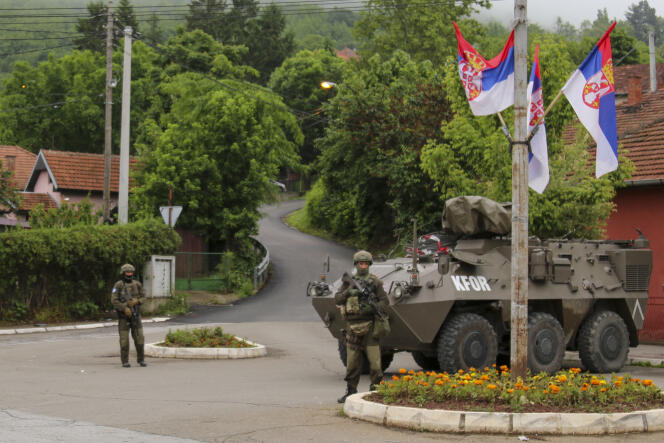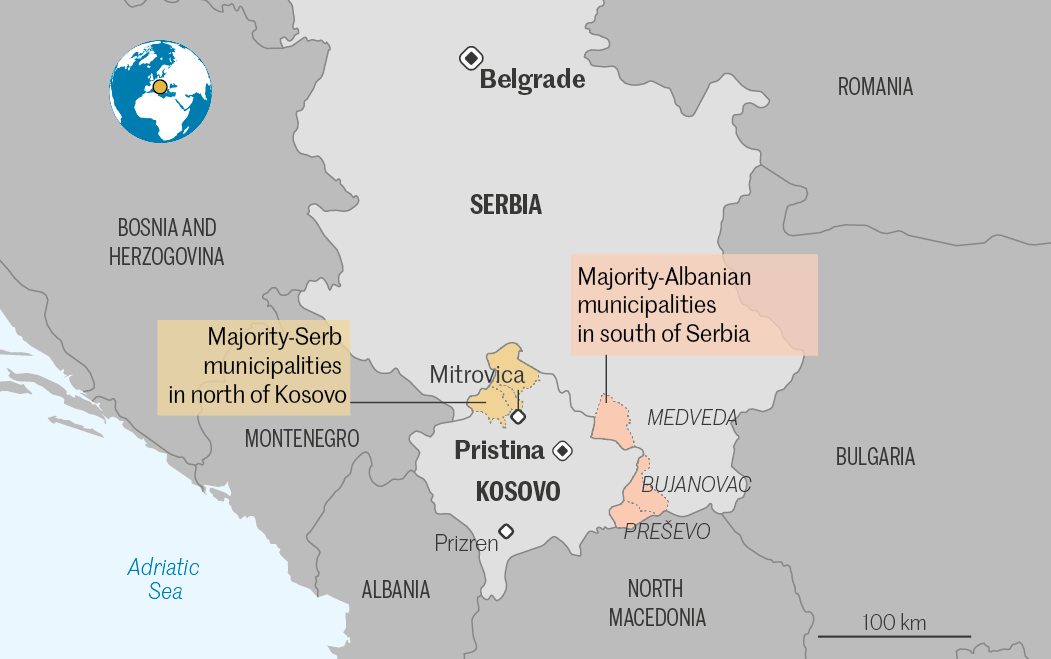
Tensions remained high in northern Kosovo on Thursday, June 1, after 30 soldiers from KFOR, the NATO intervention force, were injured in clashes with members of the Serbian community on Monday. The Zvecan town hall, heavily protected by KFOR soldiers, was surrounded by hundreds of protesters opposed to the central government in Pristina, who are protesting the election of mayors from the Albanian community. While these clashes have been the most violent for several years, they are only the latest episode in a crisis that has persisted since the 1999 war and Kosovo's declaration of independence in 2008.
The state of Kosovo
Kosovo is a small, impoverished Balkan state bordering Albania, Serbia, Montenegro and Macedonia. It has a population of around 1.8 million, according to the Kosovar Statistics Agency. Most are Albanian-speaking, with a Serbian community of 120,000 concentrated in the north of the country.
In the late 1990s, the Kosovo Liberation Army's (UCK) fighting against Slobodan Milosevic's regime was met with violent repression by Serbian soldiers, leading to the 1999 war finally halted by NATO intervention. Kosovo proclaimed its independence in 2008. Immediately rejected by Serbia, which claims the territory, Kosovo's independence was recognized by around 100 countries.
Current tensions explained
At the end of the war, while Western forces gradually occupied Kosovo as Belgrade's soldiers withdrew, a large Serbian community remained in four northern towns, between the Ibar river and the border with Serbia, a region that lives on Belgrade time. The violence of recent days is the culmination of tensions that began several months ago, when the Kosovar central government stopped recognizing Serbian automobile license plates used in the north.
In response, the region's mayors and police resigned, forcing Pristina to organize elections. Boycotted by the Serbs, the April 23 polls, in which only 1,500 Albanian speakers took part, led to the election of members of the Albanian community, who Serbs view as illegitimate. Violence broke out on Friday, May 26 when the elected mayors tried to assume office.
Serbia's interest in Kosovo
Belgrade strongly supports the Serb community in Kosovo, claiming that the region is the birthplace of the Serbian nation. It is home to the Pec monastery, the seat of the Serbian Orthodox Church's patriarchate. By writing on a Roland Garros camera on Monday, May 29 that "Kosovo is the heart of Serbia," tennis star Novak Djokovic echoed a widespread opinion in his country.
You have 65.22% of this article left to read. The rest is for subscribers only.
